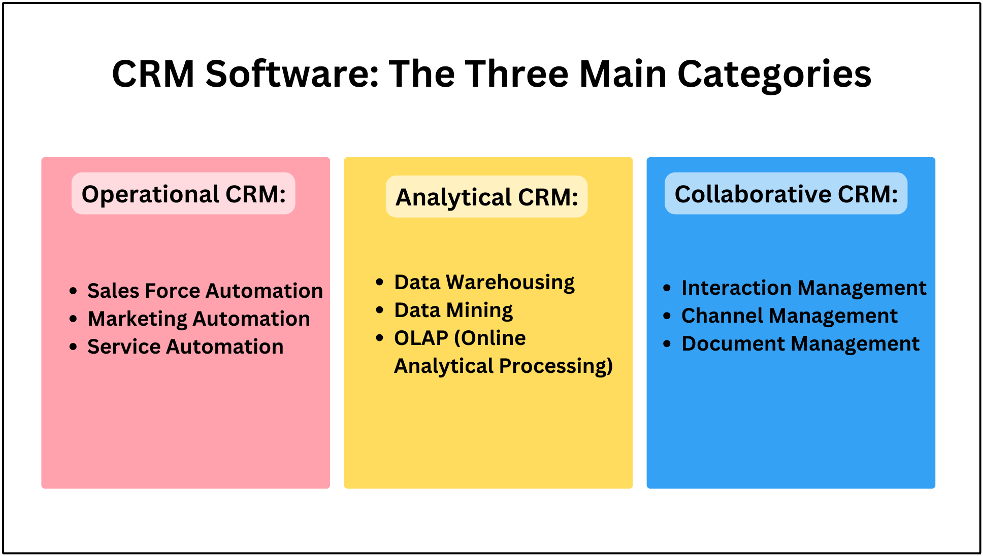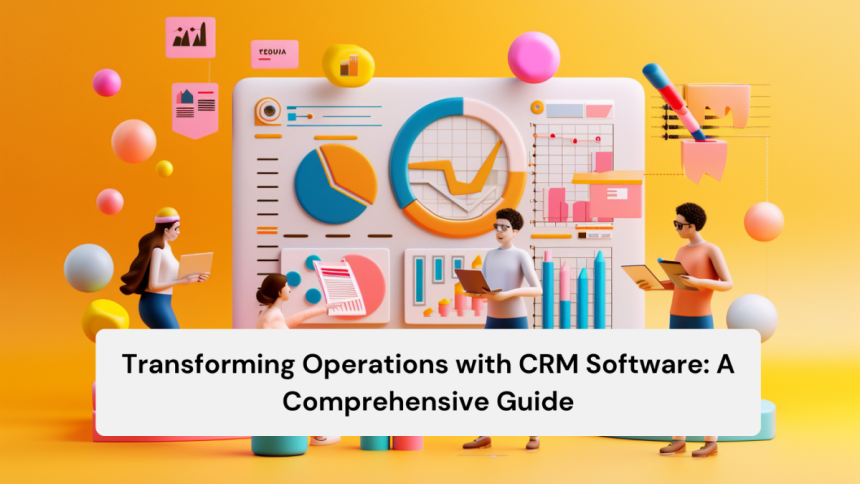In today’s fast-paced business world, staying ahead of the competition means utilizing the right tools to streamline operations and enhance customer relationships. Customer Relationship Management (CRM) software has emerged as a game-changer, offering businesses the ability to transform their operations and drive growth.
This article will explore how CRM software can revolutionize your business processes, boost efficiency, and ultimately lead to higher customer satisfaction and increased revenue.
Enhancing Customer Service Efficiency
One of the primary benefits of CRM software is its ability to significantly improve customer service efficiency. By centralizing customer data and interactions, CRM systems enable support teams to provide faster, more personalized service. This centralization eliminates the need for agents to switch between multiple systems or search through disparate databases, saving time and reducing frustration for both customers and employees.
This efficiency is particularly crucial in specialized fields like immigration consulting, where managing complex cases and time-sensitive information is paramount. A CRM for immigration consultants can streamline case management, automate routine tasks, and ensure that critical deadlines are never missed. By centralizing client information, document storage, and communication history, immigration consultants can provide more responsive and accurate service to their clients throughout the visa application process.
CRM software offers several key features that contribute to enhanced customer service:
Automated ticket management: CRM software can automatically route and prioritize support tickets, ensuring timely resolution of customer issues. This automation reduces the risk of tickets falling through the cracks and helps maintain consistent service levels.
Knowledge-based integration: Support teams can quickly access relevant information, leading to faster case resolutions. This integration allows agents to tap into a wealth of information, from product specifications to common troubleshooting steps, without leaving the CRM interface.
360-degree customer view: With all customer data in one place, agents can provide more informed and personalized support. This comprehensive view includes past interactions, purchase history, and preferences, allowing agents to tailor their approach to each customer’s unique situation.
Data-Driven Decision Making
Modern CRM systems provide powerful analytics capabilities, equipping business leaders with the insights needed to make informed decisions. This data-driven approach transforms gut feelings and hunches into quantifiable metrics, allowing for more precise strategy formulation and execution.
CRM enhances decision-making in several ways:
Real-time analytics: Access up-to-date information on customer interactions, sales performance, and market trends. This real-time data allows businesses to respond quickly to changing market conditions or emerging opportunities.
Customizable dashboards: Visualize key performance indicators (KPIs) in easy-to-understand formats. These dashboards can be tailored to different roles within the organization, ensuring that each team member has access to the most relevant information for their responsibilities.
Predictive analytics: Identify potential opportunities and challenges before they arise. By analyzing historical data and current trends, CRM systems can forecast future outcomes, helping businesses proactively address potential issues or capitalize on upcoming opportunities.
Automating Sales and Marketing Processes
CRM software excels at automating repetitive tasks, freeing up your sales and marketing teams to focus on high-value activities. For consultants, including the best immigration consultants, this automation can significantly improve efficiency and client service.
Key automation features in CRM systems include:
Lead scoring: Automatically prioritize leads based on their likelihood to convert. This feature helps sales teams focus their efforts on the most promising prospects, increasing efficiency and conversion rates.
Email campaigns: Set up and manage targeted email marketing efforts with ease. CRM systems can automate the sending of personalized emails based on customer behavior or predefined triggers, ensuring timely and relevant communication.
Sales forecasting: Generate accurate sales projections based on historical data and current pipeline. This automation provides sales managers with a clearer picture of expected revenue, helping with resource allocation and strategic planning.
The impact of these automation features is substantial. Businesses using CRM automation see a 29% increase in sales quota achievement. This improvement is likely due to the increased efficiency and focus that automation provides, allowing sales teams to spend more time on high-value activities like building relationships and closing deals.
Improving Collaboration Across Departments
CRM systems enhance cross-department collaboration by serving as a centralized hub for communication and information sharing. Real-time updates keep all team members informed of the latest developments, reducing miscommunication and enabling quick responses. Task management features define and track responsibilities, ensuring clarity and preventing tasks from falling through the cracks. This also aids managers in resource allocation.
Moreover, shared access to up-to-date customer information ensures consistent and personalized interactions across all touchpoints. By breaking down silos and fostering collaboration, CRM systems improve operational efficiency, customer service, and overall business outcomes.
Customizing CRM for Business Needs
To maximize the impact of your CRM system, it’s essential to tailor its features and workflows to your specific business processes. The best CRM software for consultants offers customization options to meet unique industry needs. For immigration consultants, software for immigration consultants often includes specialized features such as case tracking, document management, and deadline reminders for visa applications.

Integrating CRM with existing systems, like accounting or marketing platforms, ensures a seamless information flow across your technology stack. Customizing a CRM requires careful planning and collaboration among IT teams, business process experts, and end-users. Though complex, this effort results in a CRM system that enhances productivity and provides maximum value.
Measuring ROI and Performance
Implementing CRM software can significantly boost your return on investment (ROI) by streamlining operations and enhancing customer engagement. Key performance metrics to track include:
- Sales revenue: Monitor how your CRM implementation affects overall sales performance.
- Customer retention rates: Track whether the CRM is helping to reduce customer churn.
- Lead conversion rates: Measure the effectiveness of your sales funnel.
- Campaign effectiveness: Analyze the ROI of your marketing efforts.
- Customer lifetime value: Assess the long-term impact of improved customer relationships.
These metrics provide a comprehensive view of how your CRM system impacts various business aspects. Businesses typically see an average ROI of $8.71 for every dollar spent on CRM, highlighting its potential impact. However, ROI varies based on the chosen CRM solution, customization extent, and effective system utilization.
To maximize ROI, fully integrate the CRM system into your business processes and culture. This involves ongoing training, regular system updates, and a commitment to data-driven decision-making at all organizational levels. By consistently measuring and analyzing these performance metrics, you can identify areas of success and opportunities for improvement, ensuring your CRM system delivers maximum value.
Ensuring Successful CRM Implementation
A successful CRM implementation requires careful planning and execution, especially when choosing the best CRM software for consultants or specialized software for immigration consultants. Here are some key steps to ensure a smooth deployment:
Here are some key steps to ensure a smooth deployment:
Define clear objectives: Before implementing a CRM system, it’s essential to establish clear objectives. Identify what you aim to achieve, such as improving customer service, increasing sales, or enhancing data management. These goals will guide the customization and deployment of the CRM system.
Involve stakeholders: Involve key stakeholders from various departments in the planning process. Their input is invaluable in identifying specific needs and potential challenges. This collaboration ensures the CRM system is tailored to meet the requirements of different teams, fostering buy-in and smoother adoption.
Create a detailed project plan: Outline timelines, resources, and milestones. This plan should cover all aspects of the implementation, from initial setup and data migration to user training and post-launch support. Be sure to build in contingencies for potential delays or unexpected challenges.
Provide comprehensive training: A common reason for CRM implementation failure is lack of user adoption. Provide comprehensive training sessions for all users to ensure they understand how to use the system effectively. Ongoing training and support can help users stay updated with new features and best practices.
Monitor and adjust: After implementation, continuously monitor the system’s performance against your objectives. Collect feedback from users and make necessary adjustments. Regularly reviewing and refining your CRM system ensures it remains effective and aligned with your business needs.
FAQs
1. How do I ensure user adoption during CRM implementation?
To ensure user adoption, provide comprehensive training tailored to different user roles and create a supportive environment for asking questions. Regularly gather feedback to address any issues and highlight the CRM’s benefits in improving workflows and efficiency
2. What are the critical steps in a successful CRM implementation?
Successful CRM implementation involves defining clear objectives, engaging stakeholders, selecting the right CRM, customizing it to fit business processes, conducting thorough training, and continuously monitoring and refining the system based on user feedback
3. Why is it important to integrate CRM with other business systems?
Integrating CRM with other business systems ensures seamless data flow across your technology stack, reducing manual data entry and improving overall efficiency. Common integrations include email marketing tools, accounting software, and customer support systems.
Lynn Martelli is an editor at Readability. She received her MFA in Creative Writing from Antioch University and has worked as an editor for over 10 years. Lynn has edited a wide variety of books, including fiction, non-fiction, memoirs, and more. In her free time, Lynn enjoys reading, writing, and spending time with her family and friends.















